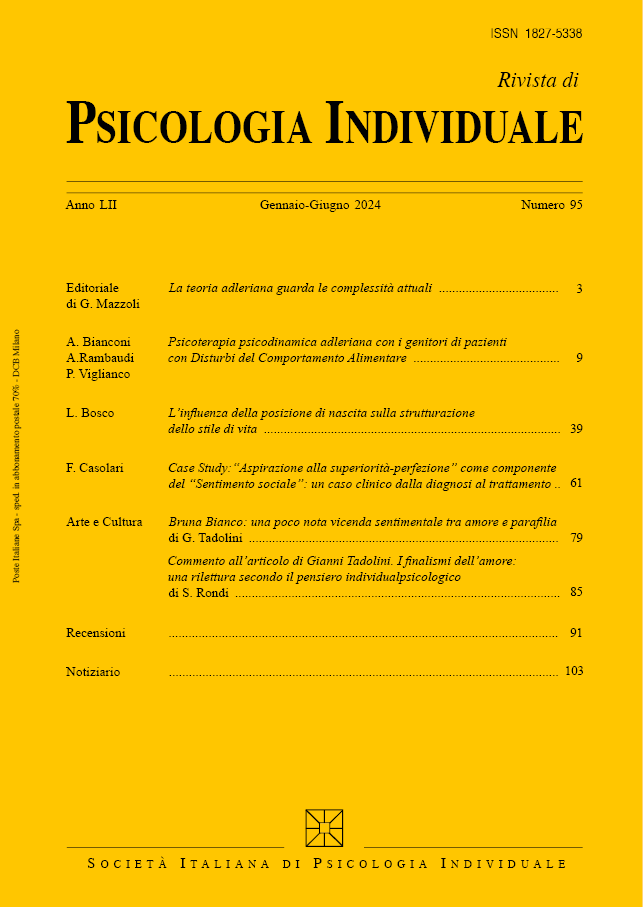NEW CHILDREN IN PSYCHOTHERAPY: FROM OMNIPOTENCE-IMPOTENCE DYNAMICS TO INFERIORITY-SUPERIORITY PROCESS. REFLECTIONS AND THERAPEUTIC STRATEGIES
Keywords:
change, childhood, psychotherapy, developmental age, child psychotherapyAbstract
Recent socio-cultural changes have a significant impact on the growth process of children today and produce new psychic dynamics. The inferiority feeling theorized by Individual Psychology, based on experience first and then awareness of his own limitations that leads to the desire to overcome them, gives way to the illusion of omnipotence created by the lack of limits that characterizes the new educational styles.
The weakening of the Father's Law produces the child remain in the kingdom of pleasure, narcissistic bond, non-recognition of the Other. Even in psychotherapy, we notice a decrease of cases in which the initial focus of the intervention treats the compensations of inferiority feelings, while we see an increase of situations where it is necessary to provide a containment and differentiation of a chaotic and unregulated inner world, to support the recognition of limits and of the Other, to reinforce the capacity to tolerate frustration that the impact with social reality implies, to reduce omnipotence-impotence oscillations to which the child today is exposed. Objectives of this communication are to present these phenomena and to describe the kind of work on the emotional world that is necessary in therapy with new children, through careful modulation of the relationship and a parallel training for parents in order to produce changes in educational methods. In many situations, the psychotherapeutic work on inferiority feeling, compensations and their harmonization with social interest is a more advanced step in which the child accesses only after reaching a more mature psychic level of functioning






